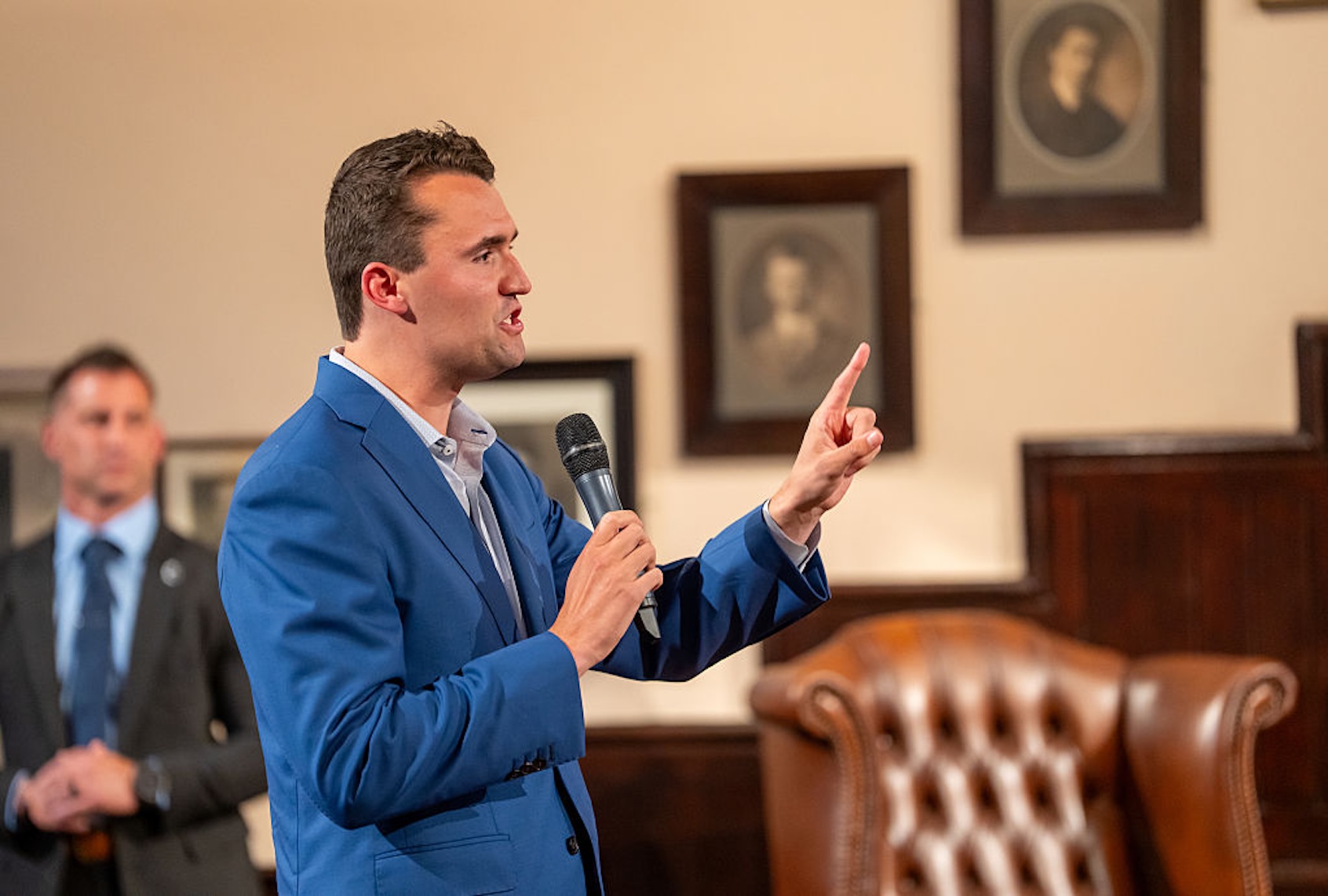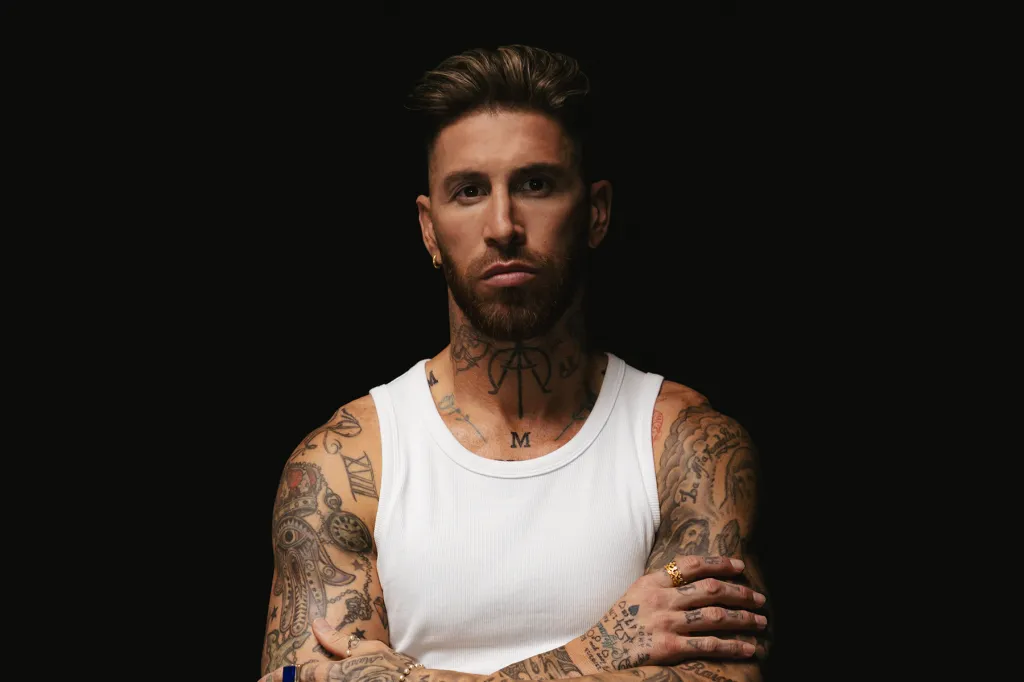
In the days after conservative activist Charlie Kirk’s tragic murder in Utah, there has been a tidal wave of commentary arguing that his public platform, and most importantly the college campus debating events for which he was most famous, were a sort of last bastion of civil public discourse. On Sept. 11, the day after Kirk was killed, New York Times columnist Ezra Klein declared that “Charlie Kirk was practicing politics the right way,” and argued that he “was one of the era’s most effective practitioners of persuasion.”
Klein, and a host of other would-be eulogists, are attempting to frame Kirk and his signature “Prove Me Wrong” events as a modern-day incarnation of the long, necessary tradition of public dialogue and debate within a democracy. It’s a lovely image: Kirk as a modern-day Socrates, wandering the agora of America’s universities seeking to find truth by means of rhetorical contest. Unfortunately, it’s not quite what he was doing. In fact, hardly anyone on the right or the left is engaging in real civic dialogue, and it’s one of the reasons our democracy is now in crisis.
Despite his invitations to “debate me” and “prove me wrong,” Kirk was not interested in a conversation. He was instead the godfather of the “Debate Me” Bros, purveyors of a prevalent internet-based entertainment format that, in an era nearly void of substantive debate, is too often passed off as such.
As Kirk’s one-time mentor, former GOP Rep. Joe Walsh, wrote after his death, Kirk was a provocateur. Despite his invitations to “debate me” and “prove me wrong,” he was not interested in a conversation. Kirk was instead the godfather of the “Debate Me” Bros, purveyors of a prevalent internet-based entertainment format that, in an era nearly void of substantive debate, is too often passed off as such.
The “Prove Me Wrong” blueprint first emerged on YouTube in the early 2010s and is a staple of the platform, where channels like Jubilee rake in millions of views and dollars. The genius of the formula is its accessibility: No expertise is required, just the confidence to spar. Consequently, the format has spread to nearly every corner of the digital world, replicated in TikTok stitches and in Facebook comment threads, where your boomer aunt and high school boyfriend can “debate” questions of policy, theology and science. Even the world’s most popular podcast, “The Joe Rogan Experience,” is centered in large part on people who don’t know what they’re talking about arguing with each other under the guise of debate.
“Debate Me” Bros are selling entertainment; they’re not really interested in public policy. This means they only talk about emotionally-driven culture war topics to juice their viewer numbers. Race, religion and the rights of LGBTQ people and women dominate the format. There is no Jubilee video, for example, on municipal transportation infrastructure or protecting public drinking water. Such omissions are intentional. While those are essential topics of our common life, they aren’t very entertaining — and they’re certainly not emotionally triggering.
“Debate Me” Bro culture is to civil discourse what porn is to sex: An intentionally titillating, vaguely degrading, commodified reproduction of something that is normally good, or at least neutral. Anyone with real experience in civil discourse can see that what the format’s practitioners are doing is a very unrealistic imitation, which explains in part why both debate and porn are most popular with those who can’t get much of the real things.
Want more sharp takes on politics? Sign up for our free newsletter, Standing Room Only, written by Amanda Marcotte, now also a weekly show on YouTube or wherever you get your podcasts.
As reflected by Kirk, and a large segment of his fan base, both the creators and audience for these so-called debates are overwhelmingly young, and usually male and white. While they tend to possess natural intellectual gifts or charm, they are often lacking in formal education or concrete expertise. The “Debate Me” Bros are people who have been largely shut out of the places where actual highbrow debate and dialogue occur: Traditional media, university classrooms, conferences and debating societies, and the elite dinner tables and parties that once-dominated intellectual life. They are also smart enough to know they are unlikely to be invited to join these spaces.
It’s easy to blame this lack of welcome on exclusionary, or perhaps just plain snobby, elites. There are legitimate arguments about the gatekeeping and nepotism that still govern these kinds of elite institutions. But none of these arguments support the contention of the “Debate Me” Bros and their audience that everyone is equally qualified to parley over every topic. Nor do these concerns change the fact that genuine — and productive — political discourse requires much more than an opinion, passion and a bit of chutzpah.
We need your help to stay independent
Democracies need free and public debates that are accessible to as many citizens as possible. But debaters should be held to a higher standard than simply having the confidence to step up to a microphone. They ought to be educated experts in the topic at hand and, just as crucially, trained in the principles of fair argument and logic. They should come prepared not only to persuade, but also to be persuaded themselves, ready to concede when their case has been dismantled — and the audience should see that happen. True public discourse of this nature, though, is rooted in the liberal arts, which teaches critical thinking, research and analysis, communication styles and problem solving, among other vital skills. With this in mind, it’s not surprising why so many of the “Debate Me” Bros — including Kirk, who published a book (verbosely) titled “The College Scam: How America’s Universities are Bankrupting and Brainwashing Away the Future of America’s Youth” — have made the liberal arts, and liberal arts education, their mortal enemies.
In our present moment, just because you don’t know what you’re talking about doesn’t mean people won’t take you seriously. And when millions mistake performance for persuasion, the very foundations of democratic life are at risk. True debate — rooted in dialogue that brings people together and feeds the health of our democracy — is hard and not always entertaining. We are in desperate need of it. But we aren’t going to get it as long as we indulge the rhetorical gladiatorial fantasies of the “Debate Me” Bros. The more we confuse their spectacle for substance, the further we drift from the civic habits that make democracy possible.



